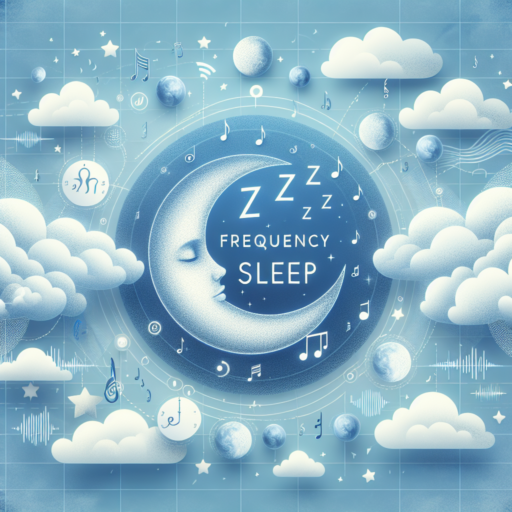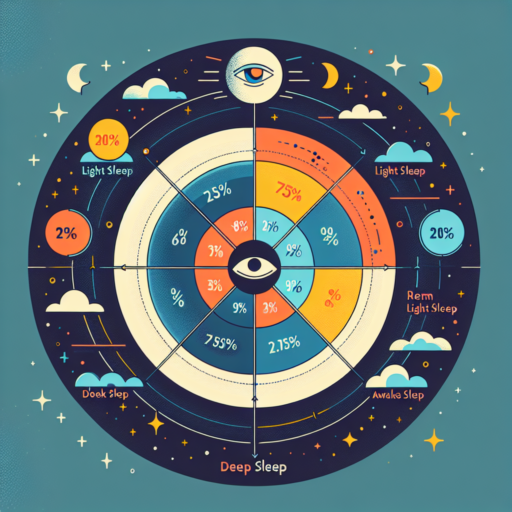Understanding HRV: What Is Heart Rate Variability?
Heart Rate Variability (HRV) is a measure of the variation in time between each heartbeat. Contrary to what some might think, a perfectly regular heartbeat is not an indicator of optimal health. In fact, a higher HRV often suggests better cardiovascular fitness and stress resilience. This variability is controlled by the autonomic nervous system (ANS), which manages how your body adapts to stress and relaxation.
The significance of HRV lies in its ability to offer insights into the body’s stress levels, recovery status, and overall heart health. By analyzing HRV, individuals and healthcare professionals can make informed decisions about lifestyle adjustments, training loads, and potential health interventions. It’s an invaluable tool in the optimization of personal health and performance strategies.
Tracking HRV can be done through wearable technology and smartphone apps, making it accessible for everyday monitoring. Regular tracking can help identify patterns related to stress, physical activity, and even predict potential health issues before they become serious. This makes HRV not just a measure of heart health, but a comprehensive tool for managing and improving overall well-being.
The Importance of Monitoring HRV When Sleeping
Understanding the significance of monitoring Heart Rate Variability (HRV) during sleep is crucial for enhancing overall health and well-being. HRV measures the time variation between heartbeats, offering insights into the autonomic nervous system’s performance. This indicator is not just a metric for athletes but is also vital for anyone interested in assessing their recovery and stress levels.
Sleep quality significantly influences HRV, highlighting the importance of monitoring these variations while asleep. During rest, the body undergoes numerous recovery processes, and a high HRV score indicates a well-rested body and a resilient stress response system. Conversely, a low HRV can signal poor sleep quality, high stress levels, or even potential health issues.
Benefits of Monitoring HRV During Sleep
- Enhanced understanding of sleep patterns and quality
- Better stress management through insights into the autonomic nervous system
- Improved decision-making regarding lifestyle choices and training intensities
Regularly tracking HRV while sleeping can aid in identifying trends and making informed decisions to improve sleep hygiene, manage stress more effectively, and ultimately, boost overall health and performance. It serves as a non-invasive lens through which individuals can gauge their body’s readiness and recovery status, making it a valuable tool for anyone aiming to optimize their well-being.
How Does Sleep Affect Heart Rate Variability?
Understanding the dynamic relationship between sleep and heart rate variability (HRV) is crucial for maintaining optimal health. HRV, a measure of the time variation between heartbeats, is closely related to the body’s autonomic nervous system and overall health. During sleep, significant changes occur in HRV, reflecting the body’s shift towards rest and restoration.
During the initial stages of sleep, particularly during non-REM sleep, the body enters a state of deep relaxation. This phase is crucial for the heart as it is a period when parasympathetic activity increases, leading to a slower heart rate and higher HRV. These changes indicate a relaxed state of the cardiovascular system and are necessary for effective recovery and rest.
Conversely, disturbances in sleep, such as those caused by insomnia or sleep apnea, can lead to significant reductions in HRV. These disturbances can signal an increased sympathetic nervous system activity, which may put additional stress on the heart by increasing heart rate and decreasing HRV. Thus, maintaining a healthy, uninterrupted sleep pattern is essential for fostering optimal HRV levels and, by extension, cardiovascular health.
Optimizing Your Sleep for Improved HRV: Tips and Techniques
Improving your Heart Rate Variability (HRV) is crucial for overall well-being, and one of the most effective ways to do this is by optimizing your sleep. Sleep quality directly impacts HRV, influencing how your body recovers and manages stress. It’s not just about the quantity of sleep, but the quality and consistency that matter. By incorporating certain practices into your nightly routine, you can significantly enhance your HRV and, as a result, your health and performance.
Establish a Relaxing Pre-Sleep Routine
Preparing your mind and body for sleep is a critical step in achieving restorative sleep that can boost HRV. Engaging in calming activities such as reading, meditation, or gentle yoga can help signal to your body that it’s time to wind down. It’s also essential to minimize exposure to blue light emitted by screens, as this can interfere with your circadian rhythm and delay the production of melatonin, making it harder to fall asleep.
Optimize Your Sleep Environment
The environment in which you sleep can have a profound impact on the quality of your rest. Ensuring your bedroom is cool, dark, and quiet can make a significant difference. Consider using blackout curtains and white noise machines to create the optimal sleeping environment. Additionally, investing in a comfortable mattress and pillows that support your sleeping position can improve sleep quality and, consequently, your HRV.
Be Consistent with Your Sleep Schedule
Maintaining a regular sleep routine is paramount for optimizing HRV. Going to bed and waking up at the same time every day, even on weekends, helps regulate your body’s internal clock, improving sleep quality and HRV over time. This regularity not only makes it easier to fall asleep but also promotes more restorative, deep sleep cycles that are beneficial for HRV.
Using Wearable Technology to Track Your HRV While You Sleep
The surge in wearable technology has transformed not just how we exercise, but also how we understand and improve our health. One of the most insightful metrics these devices offer is the monitoring of Heart Rate Variability (HRV) while you sleep. HRV refers to the variation in time between each heartbeat and is a critical indicator of your autonomic nervous system’s performance. Tracking your HRV can provide invaluable insights into your body’s stress levels, recovery status, and overall well-being.
Modern wearable technologies, equipped with advanced sensors, make it possible to continuously monitor your HRV throughout the night. This uninterrupted tracking is crucial for gaining a true understanding of your body’s physiological state. During sleep, your body goes through various phases, each affecting your HRV in different ways. By analyzing these changes, wearables can help identify patterns and potential issues in your sleep cycle, such as disruptions, quality, and depth of sleep. Furthermore, observing long-term trends in your nightly HRV data can highlight the impact of lifestyle choices on your heart health and stress levels.
However, selecting the right wearable device is key to achieving accurate HRV measurements. Devices that offer real-time HRV feedback, along with detailed analysis through an accompanying app, are particularly beneficial. These applications often provide personalized insights and recommendations, enabling users to make informed adjustments to their sleep hygiene and daily routines. For instance, you might find that reducing caffeine intake or incorporating relaxation exercises before bed can significantly improve your HRV and, consequently, your overall health and mood during the day.
No se han encontrado productos.
What Your HRV Can Tell You About Your Sleep Quality
Your Heart Rate Variability (HRV) is more than just a number. It’s a mirror reflecting the intricate balance between your sympathetic and parasytic nervous systems, which are in constant dialogue to determine your body’s state of restfulness or alertness. Observing changes in your HRV can provide significant insights into your sleep quality, giving you valuable feedback on whether your body is truly resting and recuperating during those crucial nighttime hours.
Understanding the Link Between HRV and Sleep
At its core, HRV measures the variation in time between each heartbeat, which is influenced by the autonomic nervous system’s regulation of the heart rate. When you’re asleep, ideally in a restful and undisturbed state, your HRV should be higher, indicating that your parasympathetic nervous system—the part responsible for ‘rest and digest’ activities—is dominant. A consistently low HRV during sleep may suggest that your body is experiencing stress, even if you’re not consciously aware of it, potentially impacting the quality and efficacy of your sleep.
Signs Your Sleep Might Be Compromised
By tracking your HRV and observing its pattern, you can start to identify signs that your sleep quality might be compromised. Some indicators include noticing a sudden decrease in your nightly HRV scores, experiencing erratic or unusually variable HRV patterns from night to night, or simply not seeing expected increases in HRV during what should be restful periods of sleep. These signals can highlight underlying issues affecting your sleep, such as stress, illness, or poor sleep hygiene, and prompt you to take corrective actions.
Therefore, leveraging the data your HRV offers can be a powerful tool in improving not just your sleep quality, but your overall well-being. By paying attention to these variations and understanding what they can tell you about your body’s state during sleep, you can make informed decisions to enhance your sleep hygiene, manage stress, or seek assistance if necessary, all in the pursuit of better health and more restful nights.
Improving Your Heart Health Through Better Sleep Practices
Understanding the Connection Between Sleep and Heart Health
The link between good sleep practices and heart health is well-documented by medical research. A consistent sleep schedule helps regulate blood pressure, reduces stress levels, and maintains a healthy weight, each of which is vital for cardiovascular health. Prioritizing seven to nine hours of quality sleep can have a profound impact on preventing heart disease.
Adopting Sleep Hygiene for Heart Health
Improving sleep quality can be achieved through the development of good sleep hygiene. This includes maintaining a regular bedtime and wake-up schedule, ensuring the bedroom environment is conducive to sleep, and avoiding stimulants such as caffeine and electronic devices before bedtime. These practices not only improve sleep quality but also contribute to the overall well-being of your heart.
Tackling Sleep Disorders to Protect Your Heart
Conditions such as sleep apnea, insomnia, and restless leg syndrome can severely impact heart health. These disorders disrupt sleep patterns and decrease the quality of sleep, leading to increased heart rate and blood pressure, thereby elevating the risk of heart disease. Consulting with a sleep specialist and seeking treatment for sleep disorders is a crucial step towards safeguarding your heart health.
Interpreting Your Sleep HRV Data: What the Numbers Mean
Understanding your sleep Heart Rate Variability (HRV) can provide deep insights into your overall health, stress levels, and recovery state. HRV measures the variation in time between each heartbeat, providing a unique window into your autonomic nervous system. A higher HRV typically indicates better cardiovascular fitness, less stress, and stronger recovery. In contrast, lower HRV signals potential stress, overtraining, or underlying health issues.
Deciphering HRV Scores: When interpreting HRV, it’s crucial to recognize that personal baselines vary widely. A ‘good’ HRV score for one person could be average for another. It’s essential to compare your ratings against your baseline to identify meaningful changes. Tools and applications that monitor sleep HRV help by contextualizing these numbers, offering insights into how lifestyle factors like diet, exercise, and stress levels impact your HRV.
In the realm of sleep, HRV serves as an invaluable metric for gauging recovery. During deep sleep, HRV should ideally increase, signaling the body’s shift into a state of repair and regeneration. Notably, consistent tracking over time allows for the observation of trends, empowering users to adapt their habits for optimal health and well-being.
How Improving HRV Can Enhance Overall Well-being and Performance
Improving Heart Rate Variability (HRV) is increasingly recognized as a critical aspect of enhancing overall well-being and performance. HRV, the variation in time between each heartbeat, is a key indicator of the autonomic nervous system’s flexibility. A higher HRV suggests a robust and responsive stress-management system, enabling individuals to better handle physical and emotional stress. This fundamental understanding underscores the significant role HRM plays in our day-to-day functionality and resilience.
In terms of performance, an improved HRV is linked to enhanced physical endurance and cognitive function. Athletes, for example, use HRV measurements to optimize training and recovery schedules, ensuring that they are working within their optimal stress-recovery balance. Similarly, individuals in high-stress occupations can benefit from monitoring their HRV to prevent burnout and maintain high levels of productivity. By prioritizing activities that promote a healthy HRV, such as regular exercise, meditation, and adequate sleep, anyone can positively influence their physical and mental performance.
Moreover, the connection between HRV and well-being is profoundly significant. Studies indicate that a higher HRV is associated with positive emotions and stress resilience, whereas a lower HRV is found in states of depression and anxiety. Thus, by focusing on HRV-improving practices, individuals are not only enhancing their physiological health but are also taking concrete steps towards mental and emotional well-being. Committing to such lifestyle changes can result in a profound impact on overall quality of life, marking HRV improvement as a worthwhile endeavor for both health and performance.




